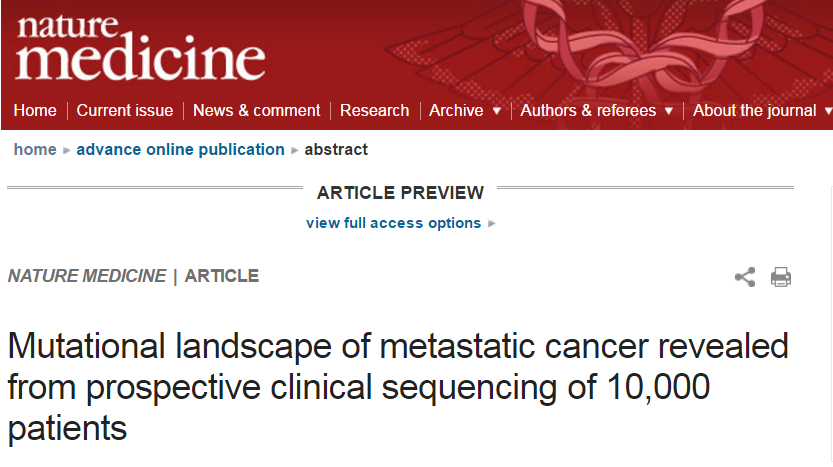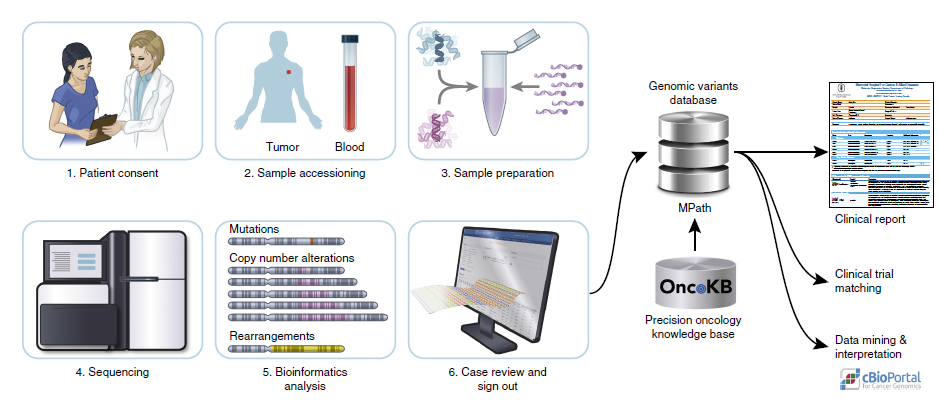Tumor molecular analysis is an essential component of precision oncology, which identifies genes and changes in pathways that are key to personalized medicine . The presence of recurrent mutations in different tissues, coupled with the expansion of the combination of molecular targeted therapies, requires a flexible and comprehensive approach to analyzing clinically relevant genes in the overall cancer spectrum.

On May 8th, Nature Medicine published a "masterpiece" online. Scientists used a comprehensive approach, MSK-IMPACT, to conduct a large-scale, prospective clinical sequencing project that collected more than 10,000 patients with advanced cancer. Data on various aspects of DNA sequences, pathology, and clinical annotation of tumors and normal tissues. Using these data, they identified clinically relevant somatic mutations, new non-coding region mutations, and mutation tags shared by common tumors and rare tumors. What's exciting is that researchers share the generated data sets to enable people to discover new biomarkers and conduct more in-depth research on rare mutations.
It detects 410 genes associated with cancer

MSK-IMPACT workflow
First take a look at what is MSK-IMPACT. Developed by scientists at the Sloan-Kettering Cancer Center, the technology is an NGS panel-based hybrid capture technology that detects all protein-coding mutations, copy number variations, and promoters in 341 genes associated with cancer. Mutations and structural rearrangements. However, according to the latest findings, this method has been able to detect 410 genes associated with cancer.
From the workflow diagram of MSK-IMPACT, we can see that the patient first signs the informed consent form for the paired analysis of the tumor and the normal sequence, and then the researchers collect the blood sample of the patient as a source of normal DNA, using automated methods to extract the tumor and The DNA of the blood sample was prepared using a hybridization probe encoding all of the exons of 410 genes, followed by sequencing, data analysis. The resulting data results are loaded into a self-developed genetic variation database and the quality and accuracy of the data is manually detected. Genome changes are displayed in the electronic medical record report and sent to the database developed by the organization, which facilitates automated clinical trial matching, and the mutated data is automatically uploaded to cBioPortal for mining and interpretation.
Automatic Air Hose Reel,Auto Rewind Air Hose Reel,Self Retracting Air Hose Reel,Air Compressor Retractable Hose Reel
NINGBO QIKAI ENVIRONMENTAL TECHNOLOGY CO.,LTD , https://www.water-hose-reel.com